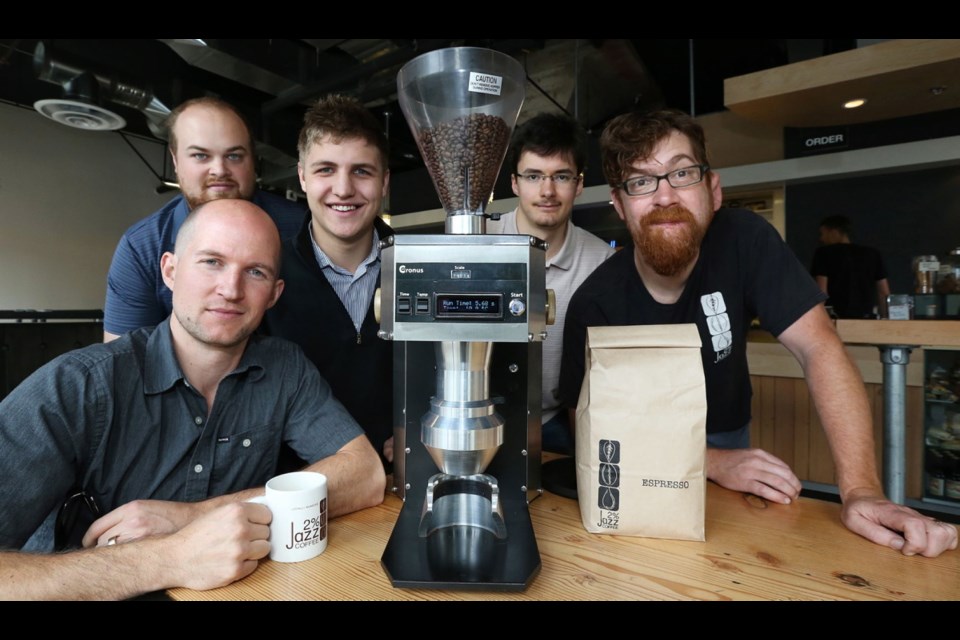A team of Camosun College mechanical engineering students have developed a water-cooled espresso grinder to satisfy a barista’s dream of making the perfect cup of coffee.
The four students spent 11 weeks on the project that uses “NASA-grade technology” to send chilly water circulating through a copper jacket around the machine’s grinder to improve flavour, team member Justin Napier said Thursday. Other team members are Forrest Trenaman, Peter Rashleigh, and Taylor Simpson.
Calling themselves Titan Engineering, they are among nine teams which created diverse projects as part of their class requirements.
Regular grinders heat up coffee beans during the grinding process, said sponsor Sam Jones, who heads up 2% Jazz coffee company, with outlets in the Hudson at 1701 Douglas St., and at 2631 Douglas St. Jones is joining the team members in the hopes of developing the Cronus coffee maker as a commercial product.
“Coffee oils are an integral part of the whole espresso-making process,” Jones said. Heat them up too much during grinding and “it diminishes the flavour. It isn’t as fresh as you want an espresso to be,” Jones said.
The project challenge took up more than 1,800 hours of time, Simpson said.
Users can choose the amount of time they want the machine to grind, the fineness and coarseness of the grind and the temperature of the water.
Team Titan has filed a provisional patent application with the U.S. Patent and Trademark Office and has applied for grants to continue developing their technology and build a second prototype. “We are pretty psyched by this. This is why you go to school, so you can do things like this,” Napier said.
Another Camosun team has created a mechanical balance board to help people in rehabilitation programs improve balance and strength. Settings can be adjusted and users can even play an interactive game on it by moving the board. The team is made up of Steven Macdonald, Kyle White, Dorian Redden and Shaun Wallis, and is sponsored by Prototype Equipment Design.
Jeff Stephens, head of the projects course in mechanical engineering at Camosun, said it can be difficult for users of regular balance boards to keep their balance. If their strength is low or they are in rehab programs, the mechanical board can be adjusted to their capabilities.
It can even be locked in the flat position or at different angles. The board’s motion as it tilts can be slowed, he said.
Stephens praised the work of all the teams, saying, “the quality this year is better than I’ve seen it. The fit and finish is almost good enough to be a commercial device.”
Normally, about one-third of the class graduates find work with local manufacturing companies. Another third head to the University of Victoria, where their credits go toward an engineering degree. The remaining third move to Alberta to take technical jobs with firms dedicated to the oil fields, Stephens said.



